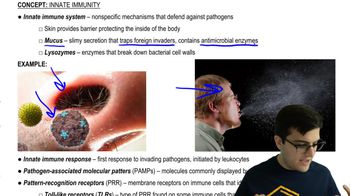Multiple Choice
Which of the following is part of the inflammatory response?
1367
views
 Verified step by step guidance
Verified step by step guidance Verified video answer for a similar problem:
Verified video answer for a similar problem:


 5:20m
5:20mMaster Innate Immune Response with a bite sized video explanation from Jason
Start learning